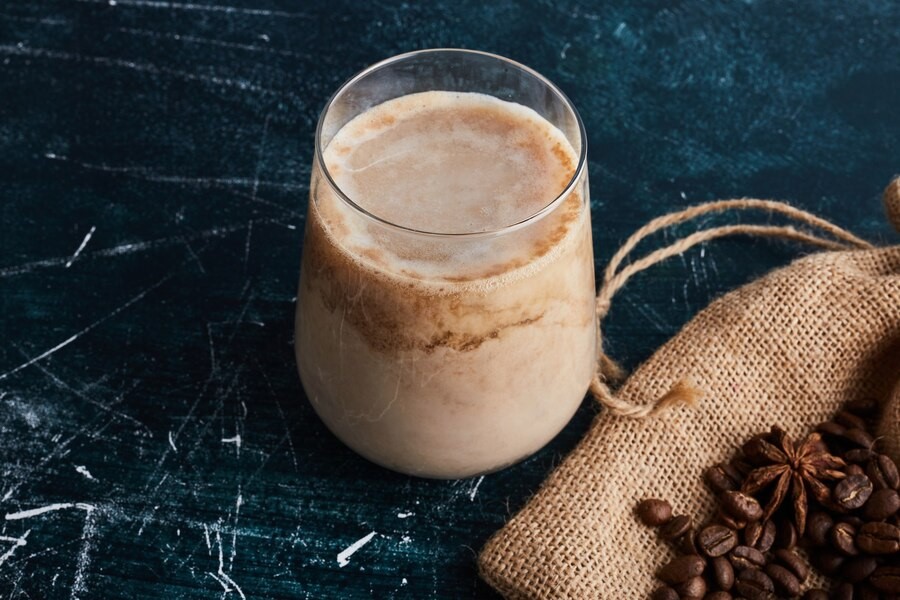Coffee drinking culture is the set of norms, traditions and practices associated with coffee consumption in a given society. It encompasses the way people prepare, serve and enjoy coffee, as well as the social and symbolic meanings attached to this beverage. Coffee as a social ritual is what unites people when they talk together.
Effects of Coffee on Nighttime Sleep and Morning Wake-up Quality
Caffeine consumption, especially from coffee, can have an impact on the night’s sleep and the experience of waking up in the morning. Here are some of the possible impacts:
Effects of Coffee on Night Sleep
- Sleep Disorder
Caffeine is a stimulant that can affect sleep. Consuming caffeine-containing coffee too close to bedtime can interfere with your ability to sleep soundly. Coffee can make it harder to enter the deeper phases of sleep.
- Sleeplessness
Coffee can make you feel more awake and reduce sleepiness. This can cause sleeplessness, especially if you already feel too awake at night.
- Decreased Sleep Quality
While you may sleep, the quality of your sleep could be affected. Coffee can shorten REM (Rapid Eye Movement) sleep time which is important for physical and mental recovery.
Effects of Coffee on Waking Up in the Morning
- Fatigue and Lack of Energy
If you don’t sleep well due to excessive coffee consumption or too close to bedtime, you may feel tired and underpowered when you wake up in the morning.
- Addiction
Consuming coffee regularly to help you wake up in the morning can make you get used to relying on it. This can result in “caffeine dependence” where you find it difficult to wake up without caffeine consumption from coffee.
- Restlessness or Anxiety
The effects of coffee can also cause a sense of restlessness or anxiety, which can affect your mood and energy in the morning.
Coffee Drinking Strategies for Maximum Daytime Productivity
- Timing Consumption Coffee
Drink coffee or other caffeinated beverages in the morning or a few hours after waking up. Avoid consuming caffeine close to bedtime to maintain a good night’s sleep.
- Don’t Go Overboard
Consume coffee within reasonable limits. Too high a dose can cause restlessness, rapid heart rate, or difficulty concentrating.
- Get Enough Rest
While caffeine may help with drowsiness, adequate rest is still necessary to keep the brain and body functioning.
- Combination with Short Breaks
Try the “combine caffeine with short breaks” technique like the Pomodoro method. Drink coffee before a 25-minute work session, then take a 5-minute break.
- Pay Attention to Food
Coffee can interact with food. Avoid excessive coffee consumption after a heavy meal, as it can cause stomach discomfort.
- Drink more water
Stay hydrated with water. Caffeine is a diuretic and can cause dehydration if consumed in excess.
- Variety of Caffeine Sources
Besides coffee, there is tea and other caffeinated beverages. Try a variety of caffeine sources to avoid saturation or a high tolerance for one type of drink.
- Prioritize Sleep
While caffeine may help, schedule enough sleep for your body and mind to function optimally.
Coffee Options to Revive the Spirit
There are several types of processed coffee that you can consider to boost your morale during the day. Here are some of them:
- Espresso
This drink provides a strong caffeine boost in small servings. You can enjoy pure espresso or use it as a base for other coffee drinks.
- Americano
Americano is made from a mixture of espresso and hot water. This results in a smoother drink with slightly lower caffeine levels than pure espresso.
- Cappuccino or Latte
These drinks consist of espresso and milk. Cappuccinos have an equal ratio of espresso, milk, and foam, while lattes have more milk. Both drinks provide a smooth taste with the caffeine effect of espresso.
- Cold Brew
This drink is brewed with cold water for several hours. Cold brew gives coffee a smooth, low-acid flavor, making it a great refreshing option during the day.
- Iced Coffee
Iced coffee is coffee that is brewed hot and then cooled. This is a great option if you want a lighter coffee flavor with a cold sensation.
Tips for Managing Caffeine Consumption to Stay Productive and Sleep Quality
- Daily Consumption Limit
Set a daily caffeine consumption limit that suits your body. Generally, 400 mg of caffeine per day (equivalent to about 4 cups of coffee) is considered safe for most people.
- Avoid Caffeine in the Afternoon
Limit caffeine consumption after 2 or 3 pm. Caffeine can affect sleep even if taken hours before bedtime.
- Pay Attention to Portion Size
If you consume caffeinated beverages, pay attention to portion size. Drinks with less caffeine may be better if you want to reduce your intake.
- Choose Lower Caffeine Sources
There are several low-caffeine coffee alternatives to try. Some drinks, such as green tea or herbal tea, contain less caffeine than coffee. Consider these options if you want to limit your caffeine intake.
- Don’t Combine with Foods High in Caffeine
Avoid consuming other foods or drinks that contain caffeine if you have already consumed a sizable amount of caffeine.
- Ensure Adequate Hydration
Drink enough water to maintain hydration, especially since caffeine can cause dehydration.
Managing your caffeine consumption wisely can help you stay productive and get quality sleep. The body’s response to caffeine varies, so it’s important to find a pattern that suits your personal needs and preferences.
The appropriate coffee consumption limit to maintain smooth work productivity may vary depending on each individual’s body sensitivity to caffeine. Typically, 1-2 cups of coffee (equivalent to about 80-200 mg of caffeine per cup) in a single session can provide the energy boost needed to improve concentration and productivity. So, consume coffee when you feel like you’re starting to feel sleepy or a little under-energized. This helps you harness the energy-boosting benefits of caffeine to improve focus.










